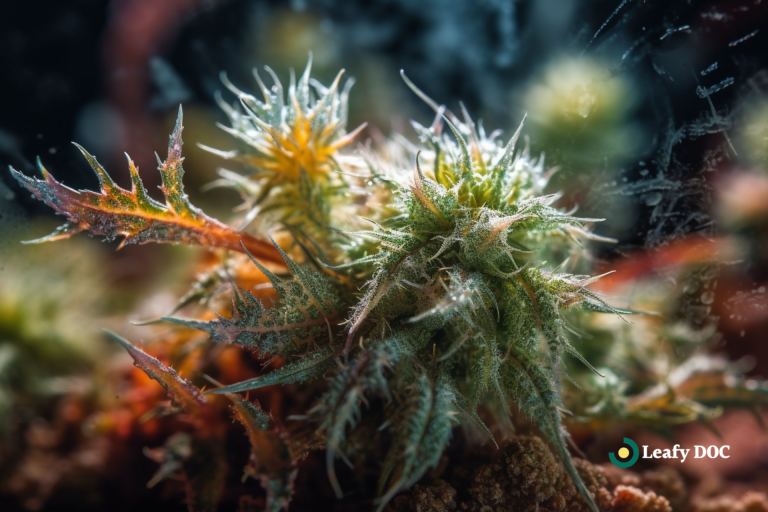Autism
Many patients report that having autism can lead to repetitive behavioral patterns and difficulties in social situations and cause delayed language development, hyperactivity, seizures, and gastrointestinal problems.
Traditional medications can alleviate some symptoms of ASD, but not always, which is why many are turning to cannabis as an alternative treatment option.
Psychological Healing Properties of Cannabis
Medical Cannabis has been used to treat mood disorders, anxiety, depression, PTSD, and more. Certain strains can produce feelings of happiness, euphoria, and an overall sense of calm that is otherwise unachievable.
Cannabis has served as an entheogen for physical and spiritual healing dating back approximately as far back as 2000 B.C. Spain introduced weed to the New World in the 1500s.
Cannabis use in many shamanic and pagan cultures helped them create profound spiritual experiences related to their society, achieve enlightenment, and reveal mysterious facts about the human mind and subconscious.
Entheogens are psychoactive substances that alter perception, mood, consciousness, cognition, or behavior to engender spiritual development. An anthropological study has established that entheogens have always been used for spiritual purposes across the globe.
What is Autism Spectrum Disorder?
Autism spectrum disorder (ASD) refers to a vast range of conditions characterized by challenges with social challenges, repetitive behaviors, and speech and nonverbal communication issues. Per the Centers for Disease Control, autism currently affects approximately 1 in 44 children in the United States.
Because autism is a spectrum disorder with many subtypes, each person with autism has their attributes and daily challenges. How those with autism learn, think, and solve problems can range dramatically. Some people with ASD may require support in most aspects of their daily lives, while others may need less help or live independently.
Many factors may influence autism development, including genetics and the surrounding environment. The disorder is often accompanied by sensory sensitivities, gastrointestinal disorders, seizures, sleep disorders, anxiety, depression, or ADHD/ADD.
Signs of autism usually appear by age three; however, they can occur by eighteen months in some cases. Research has shown that early intervention leads to better outcomes for adults with autism.
What is a day like with Autism Spectrum Disorder?
Core Symptoms of autism include:
- Delay in learning to speak, difficulties in language comprehension
- Intense focus on interests
- Difficulties with social interactions
- Repetitive movements such as flapping hands and rocking back and forth
- Sensory sensitivities
Can Cannabis treat autism?
Israeli researchers have conducted over 100 studies exploring the medicinal properties of marijuana. One Israeli study found that Cannabis effectively reduces epileptic seizures and behavioral issues in children with autism. To put that into scale, 19 percent of autistic children also have seizure disorders.
In a 2013 study, researchers noted that the CB2 receptor in the endocannabinoid system might have therapeutic properties for managing autism, as THC can bind to this receptor.
Studies on mice have found a connection between the ECS and the X chromosome and neuroinflammation, which is associated with the development of autism.
Per research conclusions by J Cannabis:
“Using lower doses of CBD and trace THC seems promising in managing behavioral problems associated with autism. In addition, this treatment could effectively address the core symptoms and cognitive functions. Compared to other studies, no significant side effects were seen at the low doses of CBD-enriched Cannabis.”
According to a 2018 report, there is evidence that Cannabis can treat:
- chronic pain in adults
- nausea and vomiting
- muscle spasms and tightness
- secondary sleep disturbances
A 2021 review concluded that Cannabis and natural compounds in the plant, called cannabinoids, could be an effective alternative therapy for ASD symptoms.
In 2019, researchers found adverse effects in 49 out of 59 reviews of the studies that compared the effects of Cannabis with those of a placebo.
What are the risks of medical marijuana?
The potential risks of marijuana and autism include:
- Headaches
- Nausea and vomiting
- Appetite Changes
- Mood swings
- Paranoia
- Anxiety
- Increased heart rate
- Coordination issues
- Dry or Red eyes
- Slowed cognitive function
- Impaired memory
- Extreme fatigue
Remember to avoid driving when using marijuana, and seek medical attention if you begin to experience severe side effects. In addition, there are many potential drug interactions to consider before using cannabis and autism medications.
Antidepressants, opioids, and sedatives are a few other examples that can negatively interact with cannabis, so it’s best to consult your doctor before using weed to treat related symptoms, especially if you are on medication.
Children with Autism and Cannabis: Is it Ethical?
Many parents and activists claim to be effectively treating their children’s symptoms of autism with cannabis. However, adolescent psychiatry experts say there is still very little evidence that it genuinely helps combat core autism symptoms.
Stories are popping up often from caregivers who give CBD oil to their children with autism and notice significant reductions in aggressive behavioral problems and hyperactivity symptoms, as well as an improvement in socialization and communication.
CBD oil does not contain any THC and is non-intoxicating when made from industrial hemp, so there are little to no adverse effects that could harm a child. If it helps, it helps. Every person is different.
Traditional Autism Treatments
- Applied Behavior Analysis (ABA)
- Speech and Language Therapy
- Social Skills Therapy
- SSRIs
- Antipsychotics
Alternative Methods of Treatment
Some examples of alternative methods to treat autism symptoms include:
- acupuncture treatment
- yoga and meditation
- biofeedback therapy
- homeopathic medicine
- animal-assisted therapy
While these natural therapy alternatives aren’t known to have serious side effects, there’s still not enough evidence suggesting that they can effectively treat autism.
Summary
Recent studies and minimal anecdotal sources suggest that some autistic people may benefit from the medicinal effects of Cannabis. However, more research is needed to support this claim. We know that there is a difference in how autistic people’s brains function when compared to those that do not have Autism Spectrum Disorder, so medicines affect each person differently. For example, Autistic people may behave, interact, and learn in a way that deviates from people without ASD. We will surely learn more about medical marijuana and autism in the coming years with ongoing research.
Last Updated: June 14, 2024
Get Your Medical Card
Connect with a licensed physician online in minutes
Table of Contents
Keep Reading
-
What Are Edibles
If you’re looking for information on what edibles are, then this is the page for you.
-
Your Guide To Adaptogenic Mushrooms
Unleash the Power of Adaptogenic Mushrooms: Your Ultimate Guide to Health Benefits. Learn how to incorporate these superfoods into your routine and boost your well-being today! Click now for the ultimate adaptogenic mushroom guide.
-
Exploring Different Medical Marijuana Strains For Enhanced Patient Access
Find the perfect medical marijuana strain for your needs and unlock enhanced patient access. Experience the benefits of different strains today – click now!



